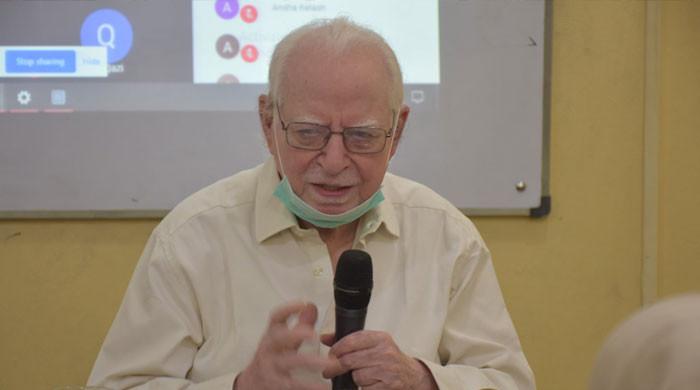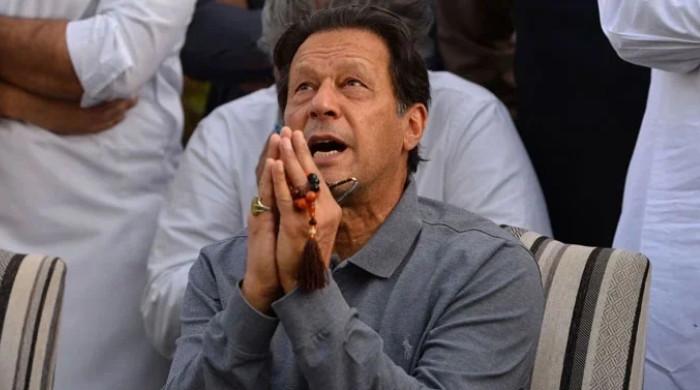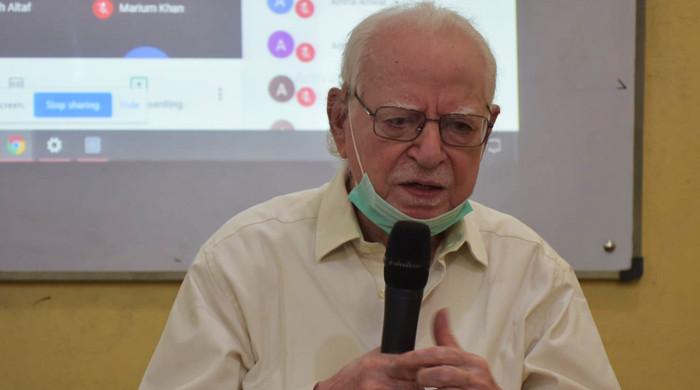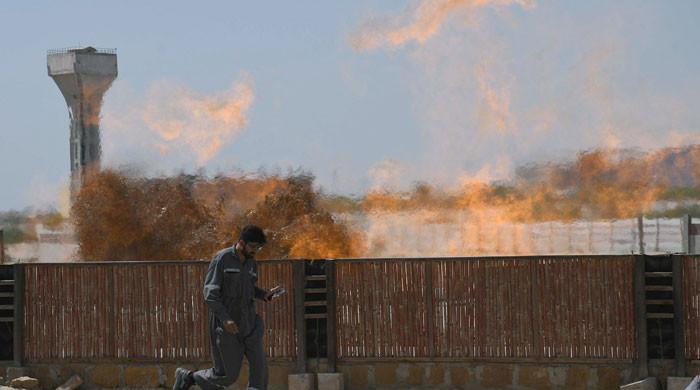Govt sets eyes on amending laws governing criminal cases
If proposals adopted, evidence from mobile phone footage, photographs, voice recordings will be admissible in court, says Farogh Naseem
January 20, 2022
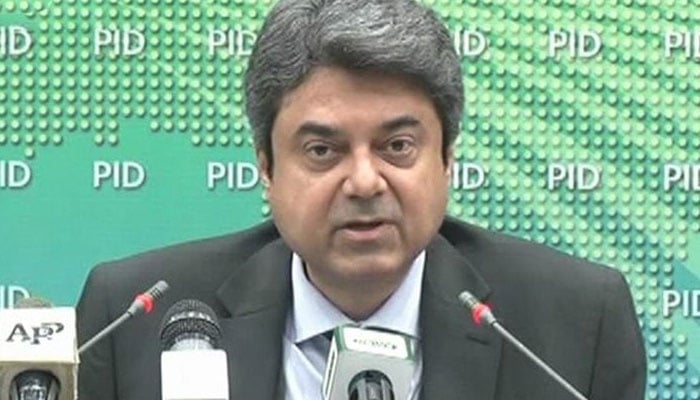
- Pakistan government decides to introduce radical amendments to laws governing criminal cases.
- Federal Law Minister Farogh Naseem says he briefed PM Imran Khan over more than 600 points.
- Mobile phone audio and videos will now stand as admissible evidence in courts after proposed amendments are adopted.
The federal government has decided to radically reform the criminal laws of the country, Jang reported Wednesday.
Prime Minister Imran Khan, while chairing a meeting on reforms in the system, gave a go-ahead to the move.
Mobile phone footage, photos, voice recordings and modern devices will be recognised as evidence in lawsuits after the passage of the proposed amendments.
"The government is not bringing an ordinance. The new proposed amendments will benefit the common man," said Federal Law and Justice Minister Forogh Naseem, calling upon the Opposition parties to support the government.
"It was decided to bring a new law of independent prosecution service in the style of the United States and United Kingdom. An overwhelming change will take place in the country's police and judicial system through revamping the existing laws."
Farogh Naseem said that PM Imran Khan has approved the introduction of the new laws in addition to amending the existing criminal laws.
In a video statement, the law minister said he briefed PM Khan on amending more than 600 points. A graduation degree should be made compulsory to be able to become an SHO across the country, he said.
The federal cabinet will approve these amendments next week, he said. Later on, these constitutional amendments would be presented in the Parliament.
The law minister further said that in case of non-registration of an FIR, an applicant can approach the SP who would be bound to process their application. Cases will have to be dispensed with within nine months, he said, adding that if the concerned judge fails to deliver a verdict within the period, they will be answerable to the relevant high court that will kickstart disciplinary action over non-completion of trial.
Farogh Naseem said police stations across the country will receive funds from the government for stationary, transport and other necessary expenses.
The law minister said acting on traditions such as walking on fire or burning cinders to prove innocence will stand as a punishable offence.
He said that in cases of common crimes, a sentence of up to five years could be commuted to six months under a plea bargain. However, the option of a plea bargain will not be available in cases of murder, rape, terrorism, treason and other crimes of serious nature, he pointed out.
If the proposed amendments are adopted, the evidence of mobile phone footage, photographs, voice recordings or any modern devices will be admissible in court, he said, adding that concerned tests would be facilitated from the forensic laboratory.




